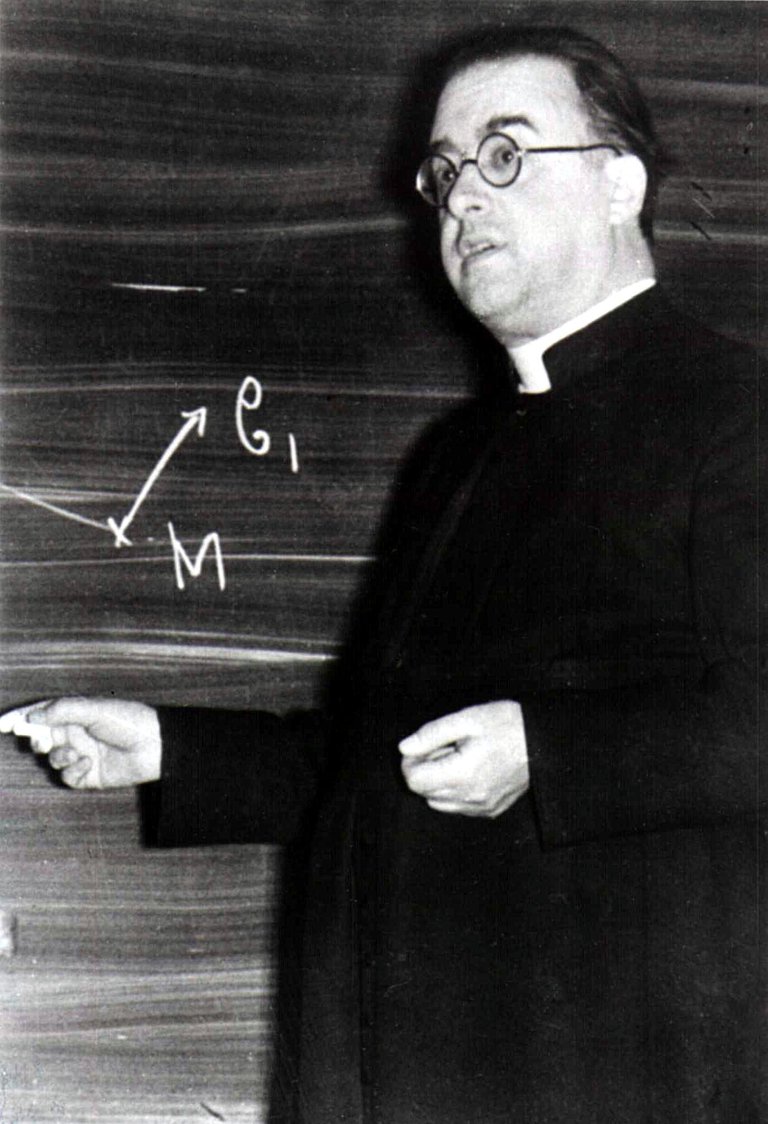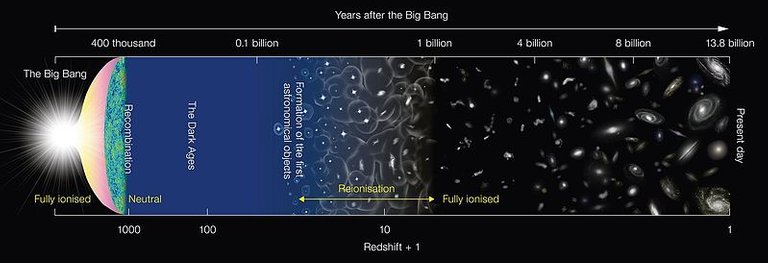Religion and science most times have the relationship of water and oil; they do not mix. There is almost always a controversy between the two such that the only non-controversial thing you could make of the two is to say that they are controversial.

Wikipedia Public Domain: Georges Lemaître (1894–1966), Astronomer and Belgian Priest
But a priest born in 1894 in Belgium by the name of Georges Lemaître, showed the two might not have to be such arch enemies.
But weirdly enough you may never have heard of him, but someone you may know by the name of Albeit Einstein happened to a big fan of his. I think Georges may well go down in history as the greatest scientists you may never have heard of. Sounds pretty odd, but that is a title I am sure he would easily win.
That is ok by him, you may never have heard of him, but I am pretty sure you might have heard of the Big Bang Theory. Of course, not the nerdy television series but the one about how our universe came to be.
He was a versatile man who got the ward of Belgian War Cross for his role in the army in World War 1. He has degrees in both philosophy and mathematics from the University of Leuven (a Catholic university). Later did a PhD in physics from the prestigious MIT. To crown it all, remember he was also a priest!
The Father of Big Bang Theory
He wrote an article about how the universe is expanding in 1927, with the title Expansion of the universe, A homogeneous universe of constant mass and increasing radius accounting for the radial velocity of extra-galactic nebulae.
The expanding universe should start from somewhere: the beginning. He wrote a letter entitled The Beginning of the World from the Point of View of Quantum Theory that was published by Nature in 1931
This letter was what gave rise to the Big bang Theory.

Wikipedia CC-BY-4.0 authored by NAOJ: A History of The Universe from the Big Bang till the present
The schematic diagram showed the evolution of the universe from 13.8 billion years when the Big Bang occurred. At the 400,000 years, the universe was in a neutral state. It remained like that until the stars initiated the ionisation of hydrogen. A few more million years after the universe is now completely ionised.
The Big Bang
From the George Lemaitre 1927 idea, he stated that the universe which started as a point expanded and stretched to get to its size, with a possibility of more expansion.
In 1929, Edwin Hubble, a fellow astronomer had a discovery for us. He noted that the other galaxies are moving away from us. The farthest galaxy is moving at a faster rate compared to the closer ones.
This line of thought proves what Lemaître thought right; the universe is expanding which invariably means that if we could go back in time, things would be close together. A eureka moment.
The universe has asteroids, stars, planets, comets, etc. which were not there in the beginning. They have to come from somewhere.
A Tiny Beginning
The universe all started off as tiny, hot particles that are mixed with energy and light. As it expands, the particles take up more space and form atoms. The atoms over a period form stars and galaxies.
The stars formed created an even bigger group of atoms called molecules. This new creation aids the formation of more stars. The galaxies also formed a group in the process of the collision. The creation and deaths of stars lead to the formation of new things such as black holes, comets, asteroids, different planets.
All these started some 13.8 billion years ago in what is regarded as the Big Bang for lack of a better word. I think I may have to borrow the word to replace it: "Everywhere Strech". Sounds better as it is about stretching and expansion.
What made such a great mind almost unknown in the field of science (physics)?
Lemaître's theory did not come without some opposition as many scientists then believe the universe infinite in both space and time.
Einstein had some reluctance to accept it at first. He believed Lemaître's has the extraordinary mathematical ability but thought he has an "abominable grasp of physics".
A stance he came to change in 1933 after Edwin Hubble, the American astronomer, dropped additional evidence in 19929 to back Lemaître's theory.
He accepted and even retracted his earlier statement, He said the theory is
This is the most beautiful and satisfactory explanation of creation to which I have ever listened NYTIMES.
Such was the genius of a scientist 1927 impact on the scientific community. But what made him not win or be considered for a Nobel Prize in physics even when he works that is Nobel-worthy?
I could hazard a guess here; simple bad luck.
Astronomer in 1927 is not regarded as part of physics, so whatever work done there is not eligible for the Nobel award in physics.
Remember that Einstein even when he did not belive his physics acknowledged his mathematical aptitude, that was correct.
Lemaître was the one who did all the mathematical work while Hubble who provided the observational basis got all the credits.
To read more about the controversy of who deserves what credit for what, read here and here.
But whichever one you believe, you would agree that Belgian priest, Georges Lemaître, deserves more recognition for his work in trying to explain the history of the universe.
This is a test comment, notify @kryzsec on discord if there are any errors please.
Being A SteemStem Member
No errors found so far
we have known the Big Bang Theory since elementary school, but we do not really know the history of Georges Lemaître as the inventor of that theory. really information that adds insight.
thanks you @bitfairy
The man needs more recognition of his work in the theories of our universe. You are very much welcome @cipitih.